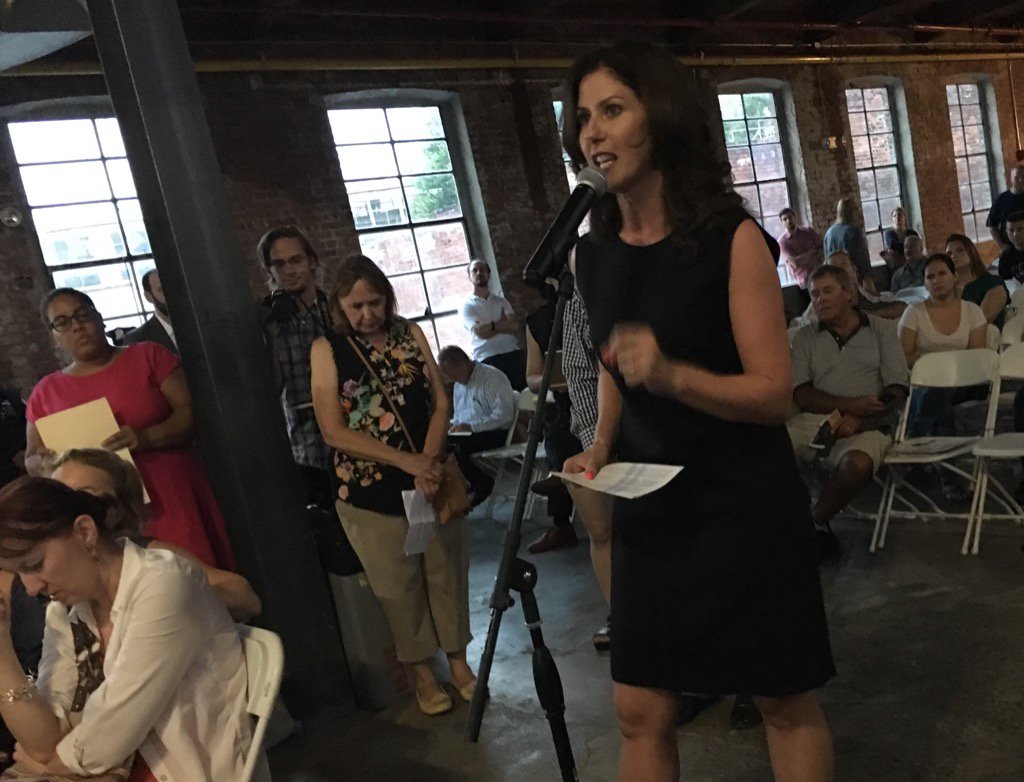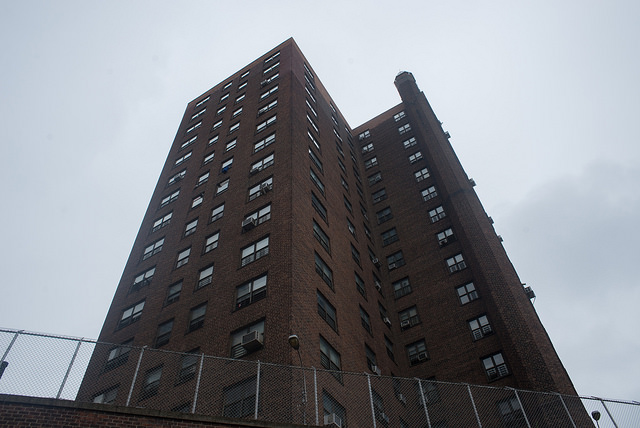Taking the Wheel at Automotive High School

Kevin Bryant, the author
The challenges I’ve faced as both a teacher and a principal have not only shaped my approach to education, but they’ve defined my career and my accomplishments.
During my four years as the Principal of Frances Perkins Academy I always sought new ways to challenge myself, colleagues and staff, students, and their families. By setting high standards and pushing ourselves to meet them, our school realized our boundless potential to exceed our own expectations, and those laid out by others. This idea guided my tenure at Frances Perkins and it will continue to guide me as Master Principal of Automotive High School, where I’ll lead the day-to-day turnaround and still continue to support Frances Perkins. I’m at the point in my career where I know I can do this hard work.
Over the last two years Automotive High School has been under immense scrutiny as it was named one of the lowest performing schools in the city. As a principal on the same campus as Automotive, I’ve seen its staff and students in the hallways and in meetings. I’ve seen their strengths and the persistent challenges that exist. I see hope, promise, hard workers, and the tenacity to do better. I enter my new role clear-eyed, knowing full-well that the road to progress will not be easy, but that it starts with earning the trust of my new colleagues and students and setting specific goals that will challenge us as a school and help us strive toward excellence.
In setting these goals and benchmarks, we need to first acknowledge that economic, achievement, and opportunity gaps persist. These can only be bridged when our students, teachers, and parents have a safe and supportive environment that invites them to become active and willing partners in education.
At Frances Perkins, we implemented a program similar to an advisory, in which a student and teacher were paired and met regularly to discuss the student’s progress and address any issues the student might be facing, either in and out of the classroom. This program was rooted in trust and accountability: it offered a safe and consistent space where teachers expected their students to show up, and students expected teachers to be there for them. Ultimately, the program helped increase both student attendance and teacher retention. I also instituted an open-door policy for parents, ensuring they always had the opportunity to ask me questions, voice concerns, and remain up-to-date on their child’s progress.
At Automotive I again plan to address some of the school’s greatest challenges by strengthening the relationship between students and teachers, fostering greater collaboration with our community based organization, encouraging parents to play a greater role in our school.
I want staff and students to feel supported by the administration and by each other; I want parents to feel welcome in our school and invested in its success; and I want to instill in our school the idea that every student, regardless of their circumstances, is capable of excellence. I know from first-hand experience that these efforts will pave the way for stronger instruction, an increase in enrollment, higher teacher retention, and expanded career and technical education (CTE) programming—something Automotive has the tools and resources to truly excel in. These efforts will all address our shared goal of improved student performance, helping our young people open more doors for themselves in the future.
At times the tasks ahead will seem daunting and as the new principal of a Renewal School I expect scrutiny from our community and the media. However, I plan to use the attention we receive as an opportunity to challenge the perception of school turnaround and to highlight the change, progress, and growth that I know will take place at Automotive.
***
Kevin Bryant is Master Principal of Automotive High School.
***
Have an op-ed idea or submission for Gotham Gazette? Email This email address is being protected from spambots. You need JavaScript enabled to view it.
Opposing Shelters Won’t End the Housing Crisis

Council Member Crowley opposes a shelter in Maspeth (photo via Twitter)
On Wednesday night I attended my community board meeting on a proposed homeless shelter in Maspeth, Queens. The city Commissioner of Social Services, Steve Banks, was there, along with hundreds of residents who are against the shelter. I was one of just a handful of homeless and housing rights advocates in the audience.
Though I was horrified by the residents who chose to stigmatize our homeless community – describing them as criminals, drug dealers, welfare hogs, and addicts, and questioning their immigration status – I was most struck by the vehement energy this community has thrown behind this cause, somehow believing that the community is exempt from the city’s housing crisis.
Homelessness is not an isolated issue. Homelessness is a product of the broader housing crisis – a crisis that is having an impact across the city in endless ways: gentrifying neighborhoods, segregating communities, and increasing income disparity, just to name a few. Keeping a homeless shelter out of your community does not solve problems.
At one point, a speaker shouted, “de Blasio brought this social engineering experiment to the wrong community!” But the “social engineering experiment” has been lingering in this community for years. Long before Mayor de Blasio and Commissioner Banks came along, decades of failed government policies built the foundation of the housing crisis we’re living in today. Be it the loss of manufacturing industries and union jobs in the 1970s and 1980s, a state-sponsored shelter allowance for low-income households that has remained the same since the 1980s, quality-of-life policing of poor communities of color, and slashes to drug education and support programs, the city’s housing and homeless crisis was long in the making. This is what Mayor de Blasio inherited – this mess is what Commissioner Banks is urgently trying to reverse with limited resources, limited support from the State, and within a limited timeframe.
While failed policies have propelled the housing crisis, a lack of commitment and leadership from our elected officials has kept us from halting its momentum. Promising to preserve the “quality-of-life” of residents, Queens City Council Member Elizabeth Crowley has helped legitimize NIMBYism in Maspeth.
On Wednesday Crowley’s office announced a lawsuit against the City over the proposal to open the shelter. Rather than becoming an elected official who is actively involved in the fight to end homelessness and the housing crisis, Crowley falls sorely short by opposing the creation of the first homeless shelter in the jurisdiction of Community Board 5.
Meanwhile, at the state level, eight months have gone by since Governor Cuomo made a commitment to build 20,000 units of supportive housing, and there has not been enough movement. Supportive housing is a crucial source of housing that pairs permanent housing with on-site services. Research has shown time and again that it is the most successful (and cost-effective) way to end homelessness for individuals living with disabilities or other special needs.
Since the 1990s, New York City and State have made a joint commitment to fund supportive housing. While few Maspeth residents mentioned the need for support and services for homeless individuals, most are likely unaware that our governor is currently sitting on nearly $2 billion set aside in the state budget for crucial housing, including supportive housing. Only a small portion of the funds have been allocated.
It’s worth mentioning here that the City has made true to its commitment.
With 80,000 homeless statewide and thousands more living on the streets, in three-quarter houses, doubled up in apartments and in other precarious housing, it’s incomprehensible that our governor continues to pay so little attention to this crisis. It’s also unconscionable that people in our communities are turning their backs on city officials working to combat the homelessness and housing crises, and on their fellow New Yorkers in need.
What I saw last night was a crowd of people who know little about what has propelled us into this housing crisis in first place; they know little about the needs of the homeless community in New York, and they are not willing to learn about either. Imagine where we might be if instead of vehemently opposing a shelter, the community put equal effort into fighting for truly affordable housing for the New Yorkers who need it the most.
***
Paulette Soltani is a community organizer with VOCAL-NY, a grassroots organization that builds power among low-income people impacted by homelessness, HIV/AIDS, drug use, and mass incarceration. She is a resident of Community Board 5 in Queens.
***
Have an op-ed idea or submission for Gotham Gazette? Email This email address is being protected from spambots. You need JavaScript enabled to view it.
Don’t Let Airbnb Fool You

photo: Sofie Hecht/Gotham Gazette
If you are to tell a lie, make it a big one and repeat it often, is a mantra of many an absolutist regime. Alas, that applies all too often to many businesses. Few epitomize that dictum better than the illegal hotel rental platform Airbnb.
That certainly was the conclusion of a recent, well-researched editorial in the San Francisco Public Press, an independent non-profit focused on local news. The authors concluded: "Fear, disinformation, deception. That’s what San Francisco voters were bombarded with last fall through record-setting, multimillion-dollar TV advertising crafted to crush progressives, defeat restrictions on short-term rentals and reshape the city’s housing map for decades to come.”
The giant tech unicorn is looking for an encore in New York as it faces a sharp curtailing of business in the state, especially New York City, if Governor Andrew Cuomo signs a bill that imposes significant penalties on listings of illegal hotels. Airbnb has put out an avalanche of advertising in Albany and New York City along with pressure from big names like Peter Thiel and Ashton Kutcher, both of whom are early investors in the company.
The narrative, risible to all but the uninitiated, suggests that the ill-intentioned hotel industry is behind the legislation that would boot hundreds of middle class families from their homes on account of their inability to meet mortgage payments without income from renting out their “spare” rooms. In fact, entire apartments, floors, and buildings without any of the mandated attributes of hotels, such as access for the disabled or fire-protection safeguards, are being converted to illegal hotels. There are good, important reasons that hotels are regulated as they are and pay the taxes that they pay.
That so many illegal Airbnb hotels are in the city center area shows as a lie that the company’s business model is reviving the outer boroughs.
A glaring inequity is that real estate and income tax subsidies meant to spur homeownership are being used to gain an unfair competitive advantage over hotels. Unsurprisingly, in New York City a good deal of the illegal transient occupancy growth has occurred in rent-regulated buildings with many beneficiaries of rent regulations quickly snapping up the online arbitrage opportunity by extracting market value for their "ownership" of prime real estate.
An oft-repeated bromide of Airbnb points to their model allowing for better utilization of resources by using homes as hotels. Perhaps. But why not then use dining rooms at homes as restaurants and bars, and conference rooms in offices as banqueting halls? Why not allow private pilots to take on paying passengers in empty seats? The answer is obvious except to those who deliberately refuse to acknowledge it.
Airbnb’s New York City “inventory” now exceeds 20 percent of the total number of hotel rooms. That only underscores the fact that a majority of their rentals are illegal. That the transient lodging industry employs over 50,000 people in New York City alone and has been a pillar of stability during the Great Recession ought to put the “debate” about Airbnb’s spurious claims to societal benefits to rest. But a model where success is predicated on illegality will stop at nothing to ensure its continuity.
With the signing of new regulations by Governor Cuomo, order will be restored to what is now a dangerous, abusive industry that is out of control.
***
Vijay Dandapani is Chair of the Hotel Association of New York City. On Twitter @dandipanivijay.
***
Have an op-ed idea or submission for Gotham Gazette? Email This email address is being protected from spambots. You need JavaScript enabled to view it.




